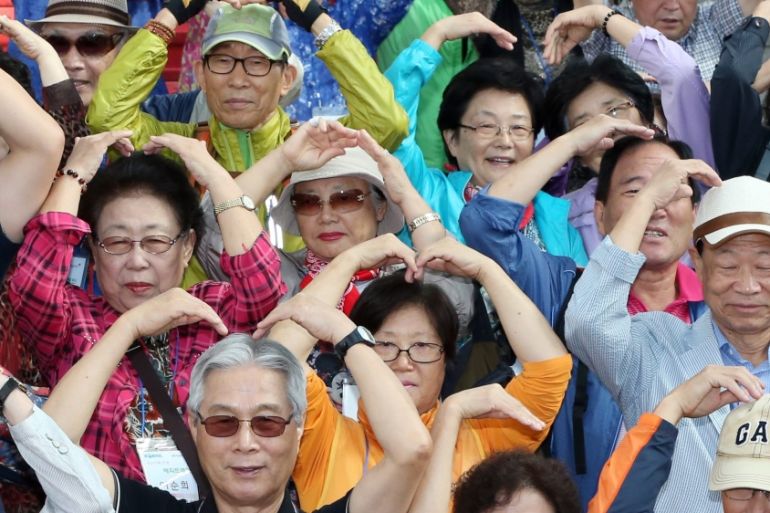North and South Korea to reunite war-torn families
Families divided by Korean War more than 60 years ago will have opportunity to meet briefly near border in October.

North and South Korea have agreed to reunite families torn apart by the Korean War six decades ago near the heavily fortified border next month, according to a statement from the South.
Tuesday’s agreement came after almost 24 hours of talks between Red Cross officials from both sides at the border village of Panmunjom.
The division of the Korean peninsula has spawned no dearth of sad, tragic and often tearful stories. Of all, most heart-wrenching stories would be that of hundreds of thousands of families torn apart in the wake of the 1950-1953 war.
“With regard to the reunions of the separated families, we agreed to hold the reunions from October 20 to 26 at Mount Kumgang. And the South and North will bring 100 people each,” Lee Duk-heang, a committee member of South Korean Red Cross, was quoted by the Reuters news agency as saying.
Lee was the head of the South Korean delegation to the talks.
The reunions will take place between October 20-26 at Kumgang Mountain, which has a scenic mountain resort in the North, Al Jazeera’s Musun Kim said.
One hundred people from each side will be allowed to meet their family members on the other side of the border, he added.
The agreement to hold reunions, which would be the first since 170 families embraced in emotional scenes in February 2014, follows the negotiated end to a recent armed confrontation across the border.
Nearly 130,000 South Koreans looking for family members in the North have registered with the government in Seoul since 1988, but only about 66,000 are still alive, most of whom are aged 70 or more, according to the unification ministry data.
“The division of the Korean peninsula has spawned no dearth of sad, tragic and often tearful stories. Of all, most heart-wrenching stories would be that of hundreds of thousands of families torn apart in the wake of the 1950-1953 war,” Al Jazeera’s Kim said in a blog this week.
RELATED: The strange case of North Korean defector Kim Ryen-hei
Some critics, however, say the reunion programme works too slowly and involves too few families. Many elderly people on both sides die before they can reconnect with loved ones.

Tuesday’s agreement called for more talks to pave the way for further reunions beyond those scheduled for next month.
Seoul and Pyongyang have remained technically in a state of war since the war ended in a truce, not a peace treaty.
Last month, tensions boiled over into an exchange of artillery fire after Seoul blamed Pyongyang for landmine explosions that wounded two South Korean soldiers. North Korea denied the accusations. The confrontation was finally resolved after marathon talks between government officials.